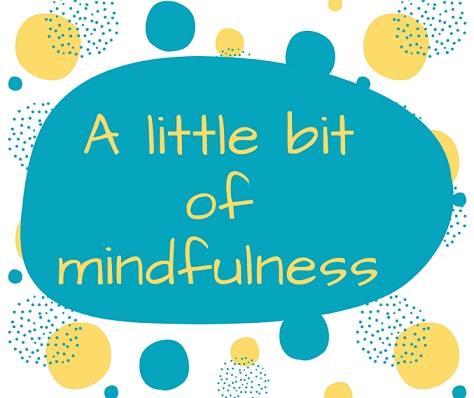James Kelly, Counsellor, reflects on anxiety in young people and a shares a simple mindfulness technique.
In my experience of delivering counselling over the past 12 years, I have come across a lot of young people who experience a great amount of anxiety about worrying about things that have happened in the past, or might happen in the future.
This can cause young people to stop them from functioning in their daily life as they fear about things that have happened or could happen in the future. They often don’t want to go to school or stop themselves from joining in with social activities with friends or family. The truth be known we all experience unpleasant things that have happened in the past or we worry that something might happen in the future or we just generally worry that if things can go wrong they probably will. This is a key trap that most of us fall into and generally we tend to resolve some of this anxiety – by doing things that we fear and witnessing that bad things won’t actually happen if we try these activities. But for some people they seem to get ‘stuck’ in the trap of worrying about things.
I am a person-centred counsellor and this usually means that I allow the clients to come to their own conclusions without any input from myself other than just reflecting things back to clients with a very non-judgemental attitude. This usually allows client to tune into their own sense of ‘internal locus of evaluation’ and they decide what feels right for them without any external influence. But in some cases where people are stuck, a little bit of ‘intervention’ is helpful for the client as they are often not able to see how things could be better for them.
I usually tell my clients who are stuck in this state, that worrying about things that might or might not happen is not helpful as they have no control over what might or might not happen and therefore why worry about something that they have absolutely no control over. Worrying too often can be a waste of energy. Worrying about past events is not helpful as they cannot change the past so they are better off trying to come to terms what happened in the past and accept any mistakes they made as a learning experience for the future, after all, we all make mistakes.
People are often crippled with embarrassment about what happened in the past, but again this is not going to change the past, so best to talk about it and make some resolution about past events. In terms of the future, our minds are pre-conditioned to worry about future events that may or may not happen and also there is research that worrying about things can be a little bit addictive because of the hormones that it produces. It is best to stay in the present where they are living in the moment, but a lot of clients miss out on this concept.
I also teach my clients some basic principles in mindfulness.
They should try this technique for just 10 minutes each day for a couple of weeks to get into the practice of it:
- Find a quiet space and relax and concentrate on the here and now; all you have to do is focus on what is going on around you and your body.
- A good way to achieve this is to close your eyes and notice your body right from your toes and scan your mind all the way through your body, noticing that you are aware of your different body parts, such as toes, feet, legs, knees, thighs, stomach, chest, hands, fingers, arms, neck and face, also notice your breathing.
- This helps you focus on the here and now and also notice what is going in your mind, and if you experience your mind wandering, acknowledge it and let it go.
- Say to yourself that these are only thoughts, not actions and put them away from your mind.
- You should also be aware of anything that is going on around you, like sounds and smells.
Don’t worry if you feel that you are getting it wrong, it just takes a little bit of practice. Doing this exercise will eventually allow you to ‘let go’ of things that you have been worrying about and you realise that you are in the here and now.
James Kelly, Counsellor






